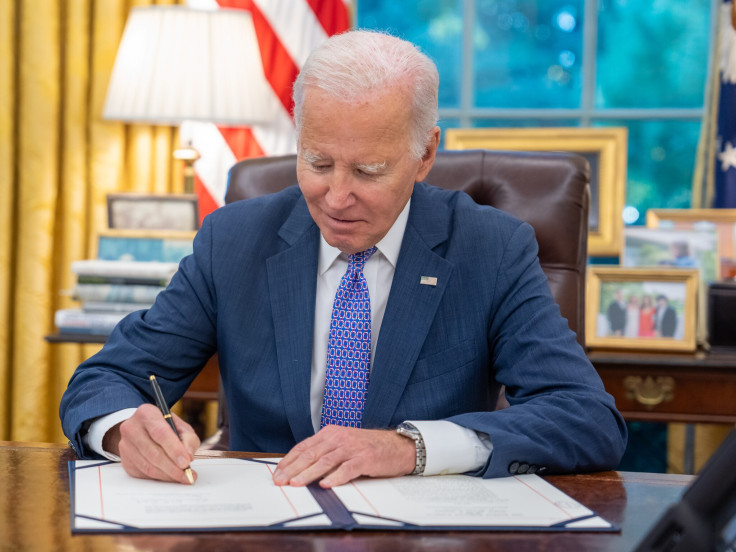US Wants Cloud Giants To Snitch On Foreign Clients
China's rapid progress in AI is a major concern for the Biden administration, which views Beijing as its strategic competitor.

Further raising tensions in the ongoing tech competition with China, the US has asked leading cloud services providers like Amazon.com and Microsoft Corp. to identify and report foreign clients developing artificial intelligence (AI) apps on their platforms, citing national security concerns.
The Biden administration's recently released proposal requires the firms to divulge key details like their foreign customers' names and IP addresses. Draft rules suggest Amazon and Alphabet Inc.'s Google will have to determine how to collect those details and report any suspicious activity.
As if that weren't enough, a top US antitrust regulator recently confirmed that it is probing investments made by Amazon, Google and Microsoft in AI startups OpenAI and Anthropic.
If Washington manages to implement the regulations requiring cloud providers to identify and report foreign AI clients, it could limit Chinese firms' access to critical data centres and servers used for AI training and hosting.
US asks Amazon, Microsoft, Google to track foreign AI activity
The new rules force AI-centric US firms to become data detectives that collect, store and analyse customer data on the cloud services. This is similar to the strict know-your-customer (KYC) rules in the financial industry.
According to an unnamed official at a major US cloud provider, collecting detailed customer information is a backbreaking process and it costs a bomb.
The official, who asked not to be identified, also warned that complying with these requirements could put American firms at a disadvantage compared to global competitors who wouldn't face such requirements.
In a statement, vice president of US government affairs at Microsoft Fred Humphries said the company welcomes KYC and cybersecurity requirements for AI infrastructure and is willing to provide input on the draft rule in the future.
In line with this, Microsoft President Brad Smith met with China's Minister of Commerce Wang Wentao last month to discuss AI, economic cooperation and relations between Washington and Beijing. Amazon and Google, on the other hand, are still mum on the new requirements for AI companies.
The Biden administration, which considers Beijing its primary global strategic competitor, has understandably expressed concern about China's development of AI and other newfangled technologies.
AI governance requires concerted and coordinated response, not decoupling, severing of chains or fence-building. We urge the US not to act contrarily to the laws of sci-tech advancement and to create favorable conditions for international AI cooperation. pic.twitter.com/Khnveuji15
— Spokesperson发言人办公室 (@MFA_China) January 29, 2024
Last week, Secretary Gina Raimondo said her team is leaving no stone unturned in a bid to eliminate national security threats posed by the uncontrollable AI development. Notably, her team could focus on Chinese firms as part of this effort.
Washington, which has been restricting Beijing's access to the latest semiconductors, also wants to stop Chinese firms from developing AI with potential military capabilities. According to a Bloomberg report, Raimondo said: "These models getting in the hands of non-state actors or people that aren't our allies is very dangerous."
#FMsays China urges the US to respect the market rules and the principles of fair competition to facilitate international cooperation in AI governance, FM spokesman Wang Wenbin said after the US was reported to require cloud firms to reveal clients developing AI apps in their… pic.twitter.com/SOwr2cj1Ze
— China Daily (@ChinaDaily) January 29, 2024
In contrast, during a press briefing in Beijing on Monday, Chinese Foreign Ministry spokesman Wang Wenbin urged the US to cooperate on AI "rather than decoupling, breaking chains and building fences".
© Copyright IBTimes 2025. All rights reserved.






















